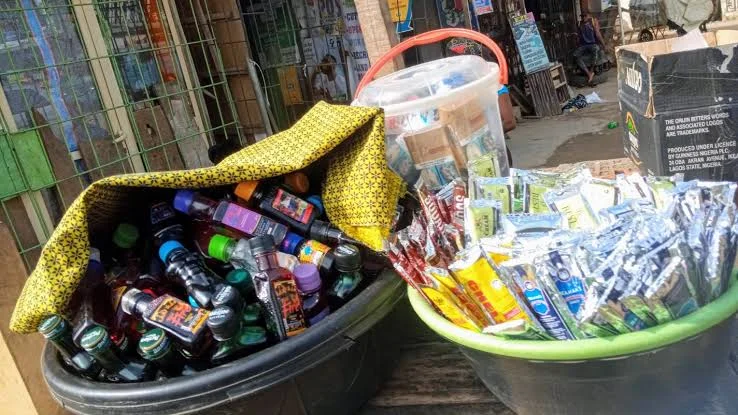The clock is ticking towards a decisive moment for Nigeria. By December 2025, the government intends to enforce a nationwide ban on sachet alcohol. The approaching deadline has ignited a fierce national debate. Regulators frame the move as a public health imperative. Manufacturers warn it could devastate local industries and wipe out investments worth trillions of naira.
The National Agency for Food and Drug Administration and Control leads the policy, acting under a Senate directive. NAFDAC argues it must protect vulnerable groups, especially children and young adults. Alcohol in sachets and small bottles under 200ml is cheap, accessible, and easy to conceal. Officials say this high accessibility fuels underage drinking, addiction, road accidents, violent behaviour, and other social harms.
NAFDAC Director-General, Prof Mojisola Christianah Adeyeye, insists the ban protects public health rather than punishes industry. She argues the decision is based on scientific evidence, not sentiment. She has ruled out any further extensions, and the Senate agrees: the deadline stands.
Health organisations strongly support the firm stance. Groups including the Coalition for Healthy Food Advocacy, Network for Health Equity and Development, and Corporate Accountability and Public Participation Africa say the ban will safeguard children and reduce alcohol misuse. They also argue that industry claims about massive job losses are exaggerated because most production processes are automated.
Industry fights back, highlighting implications
Manufacturers, however, warn of catastrophic consequences. The Manufacturers Association of Nigeria demands that the government withdraw the ban. Its Director-General, Segun Ajayi-Kadir, says the policy threatens more than N1.9 trillion in local investments. MAN forecasts over 500,000 direct job losses and as many as 5 million indirect jobs wiped out across logistics, distribution, and marketing.
They also warn that a ban could open the market to smuggled foreign alcohol, eroding government revenue and creating a more dangerous black-market environment. MAN insists earlier research found no strong link between sachet alcohol and youth abuse.
The Food, Beverage and Tobacco Senior Staff Association shares these concerns. Its president, Jimoh Oyibo, fears Nigeria could lose more than N2 trillion in investments. He warns that smuggling of unregulated alcohol will surge, posing even greater health risks. The union wants the Senate to hold a public hearing before the ban takes effect.
What Economists see
Economists describe the situation as a “mixed bag”. Dr Muda Yusuf notes that the ban will sharply reduce demand because sachets meet the needs of low-income consumers. Abdulmalik Abdulazeez adds that the removal of small formats will squeeze manufacturers and may trigger liquidity problems.
For now, sachet alcohol brands face an unavoidable reality: adapt or collapse.
What should manufacturers do to survive the policy
With the December deadline approaching, brands must respond decisively. They need to stop producing sachets and other sub-200ml formats immediately. The ban targets these sizes without ambiguity. They must shift production and investment to larger, legal formats.
Industry bodies believe another route exists. MAN and FOBTOB urge the government to adopt the Nigeria National Alcohol Policy, a multi-sectoral framework that regulates alcohol rather than bans it outright.
Brands also need a rapid strategy for managing unsold inventory, making production line adjustments, implementing new marketing plans for larger bottles, and maintaining liquidity. Transition pains are inevitable.
A Nation split between profit and protection
Nigeria now faces a policy battle between economic survival and public health. Manufacturers call for regulation instead of prohibition. Regulators insist that immediate action is essential to protect young people.
The fate of an estimated N1.9 trillion investment hangs in the balance on the December cut-off. The policy works like scissors. One blade, NAFDAC, cuts to remove social harm. The other blade, industry, warns that the same cut severs economic lifelines. If both sides fail to align, the resulting tear could damage the wider economy.






Comment
No comments found.